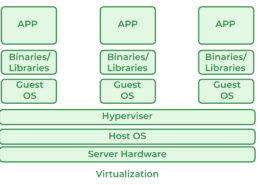Data Encryption: Encrypt data both in transit and at rest. Use strong encryption protocols to protect sensitive information from unauthorized access. Access Controls: Implement robust identity and access management (IAM) policies. Use multi-factor authentication (MFA) and role-based access controlsRead more
- Data Encryption: Encrypt data both in transit and at rest. Use strong encryption protocols to protect sensitive information from unauthorized access.
- Access Controls: Implement robust identity and access management (IAM) policies. Use multi-factor authentication (MFA) and role-based access controls to restrict access to only authorized users.
- Regular Audits and Monitoring: Continuously monitor cloud environments for suspicious activities and conduct regular security audits. Use tools that provide real-time alerts and comprehensive logging.
- Compliance and Security Standards: Ensure compliance with relevant standards and regulations, such as GDPR, HIPAA, and ISO 27001. Verify that the cloud provider adheres to these standards.
- Data Backup and Recovery: Implement regular data backup procedures and establish a disaster recovery plan. Ensure that backups are also encrypted and securely stored.
- Network Security: Use firewalls, virtual private networks (VPNs), and intrusion detection/prevention systems (IDS/IPS) to protect the network and prevent unauthorized access.
- Patch Management: Regularly update and patch systems and applications to protect against known vulnerabilities.
- Vendor Security Assessment: Evaluate the cloud provider’s security measures and capabilities. Ensure they offer strong security features and adhere to best practices.
See less


Becoming an ethical hacker involves a structured approach to developing skills, gaining knowledge, and adhering to ethical guidelines. Here’s a concise roadmap highlighting the important points: Education and Knowledge: Formal Education: Obtain a degree in computer science, cybersecurity, or a relatRead more
Becoming an ethical hacker involves a structured approach to developing skills, gaining knowledge, and adhering to ethical guidelines. Here’s a concise roadmap highlighting the important points:
Education and Knowledge:
Skills Development:
Ethical Guidelines:
Practical Experience:
In summary, becoming an ethical hacker requires a blend of formal education, skill development, adherence to ethical guidelines, and practical experience.
See less